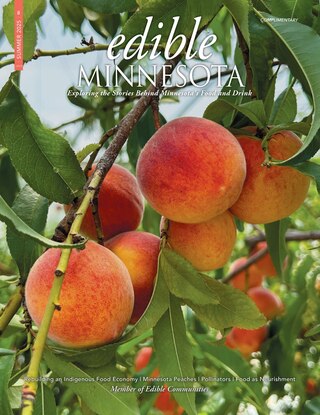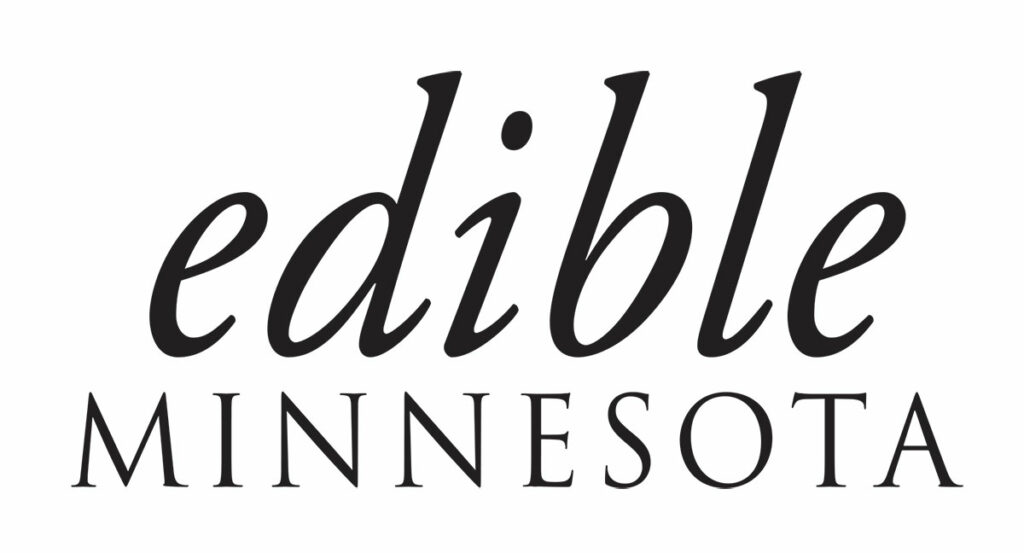Mill City Farmers Market Charitable Fund Provides the Financial Fertilizer Farmers Need to Thrive
Written by: Ellen Burkhardt
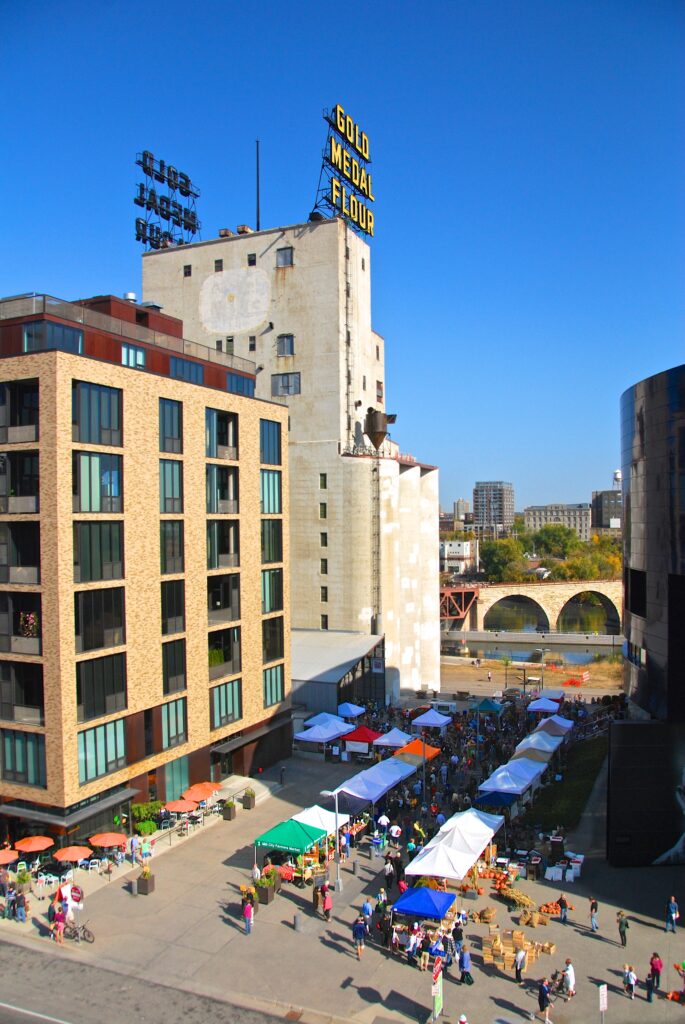
When a tornado hit his farm the last week of August 2024, Andy Petran of Twin Cities Berry Company was as devastated as his crop of strawberries.
“I was emotionally in a really bad spot and had to take a week off farmers’ markets to repair everything, which was economically really hard, too, because it was peak season,” he recall. “It just knocked down everything all over again, just 72 hours after 80-mile-per-hour winds had torn through the farm and tore things up.”
Instead of fully giving into the option that his growing and selling season was over early, though, Petran called up the folks at Mill City Farmers Market Charitable Fund. Within days, he secured a Hardship Grant from them, and the immediate infusion of emergency funding bought Twin Cities Berry Company the time it needed to rebuild, leading to its highest yield ever in 2024.
“I thought after the tornado the business was over,” Petran says. “But the grant allowed us to recover and rebuild, and we ended up harvesting tons of fruit, more than I ever expected. And it was due to support from friends, family, people coming out to help and Mill City’s financial support.”
Mill City Farmers Market Charitable Fund is the charitable arm of Mill City Farmers Market, the first zero-waste farmers’ market of Minnesota’s 370+ markets. Founded in 2013, the Charitable Fund supports and deepens the market’s role and impact as an anchor in our local food system. It does this primarily through two grants: the Hardship Grant, which provides up to $2,000 to growers and food producers on a rolling basis depending on immediate need, like in the case of Twin Cities Berry Company; and the Next Stage Grant, which provides farmers and producers with up to $7,000 to expand their businesses through things like education, certification, equipment, project funding and other initiatives that are often out of reach for smaller, newly established farms. Growers and producers do not have to be a vendor at Mill City Farmers Market to apply for the grants.
Since 2013, a total of 153 grants totaling $473,000 have been given to local and sustainable farmers and food producers within 200 miles of the Twin Cities, each aiding the region’s community of growers. In 2025, the Charitable Fund anticipates hitting the half-million-dollar benchmark.
“We try to make applying for the grants really accessible,” explains Ella Daniels, Mill City Farmers Market and Charitable Fund Executive Director. “We want our grants to make a meaningful impact on a farmer’s life and business. Farmers are at the forefront of climate resilience; the food they grow supports our health. They really do us a public service and they shouldn’t be the ones that have to absorb all the risk.”
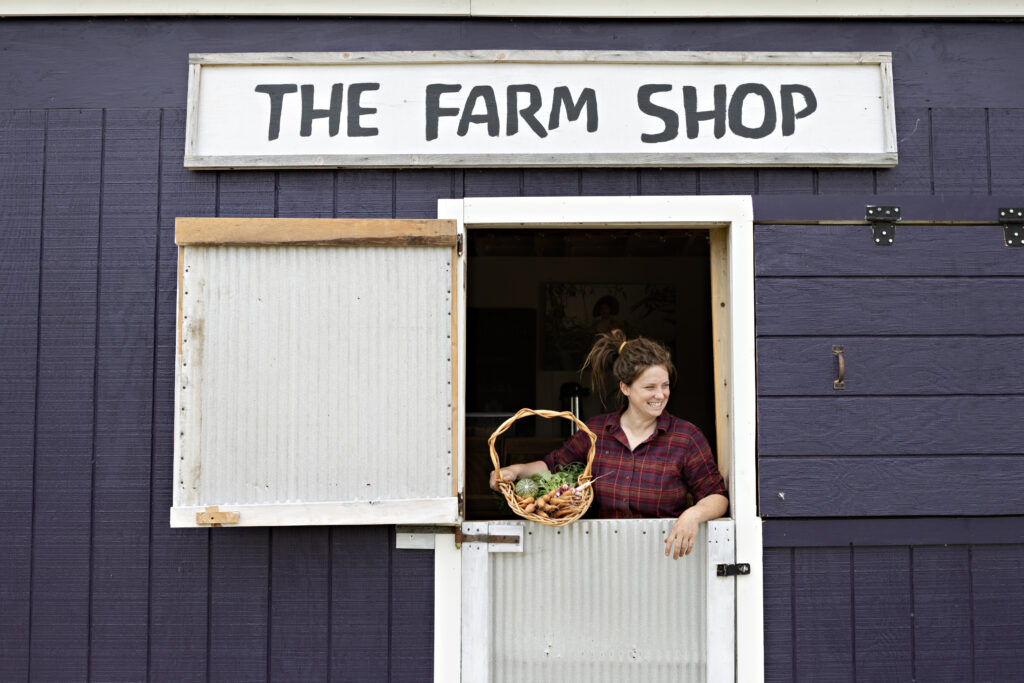
In 2024, Kelsey Love Zaavedra of Heirloomista in Amador Township was one of the independent farmers who received a Next Stage Grant. At Heirloomista, Zaavedra grows heirloom-only varietals on five acres of land. She started the farm literally from the ground up, using her experiences from traveling, studying with a beekeeper, working as a landscaper and eventually getting a degree in biodynamics from Emerson College in the U.K. as her foundation. She knew she could be growing much more than she was but didn’t have the infrastructure to process additional crops. That’s where Mill City stepped in.
“This grant is such a big deal because it allowed me to purchase equipment that helped me step into the next level of my farming career,” Zaavedra shares. “I’ve always known I could grow so much more, but what I couldn’t do was process it. And if you don’t have a way to process things, you can’t confidently step into another market. The Next Stage Grant gave me that boost.”
Zaavedra used the Next Stage funding to purchase a commercial salad spinner and a bubbler — think a Jacuzzi for salad greens. Both allowed her to increase volume while maintaining quality.
With the commercial spinner, Zaavedra went from needing five hours to cut, wash, dry, pack and clean 20 pounds of greens to needing less than two hours. To most, that might not sound like a lot, but for Zaavedra, it was huge.
“It meant that I got to eat breakfast and visit my family,” she explains. “It sounds dramatic, but when the farming season begins, it’s like, ‘See you next winter!’ Purchasing that equipment with the grant gave me the physical and mental capacity to just be more of a real human during this insane time of year.”
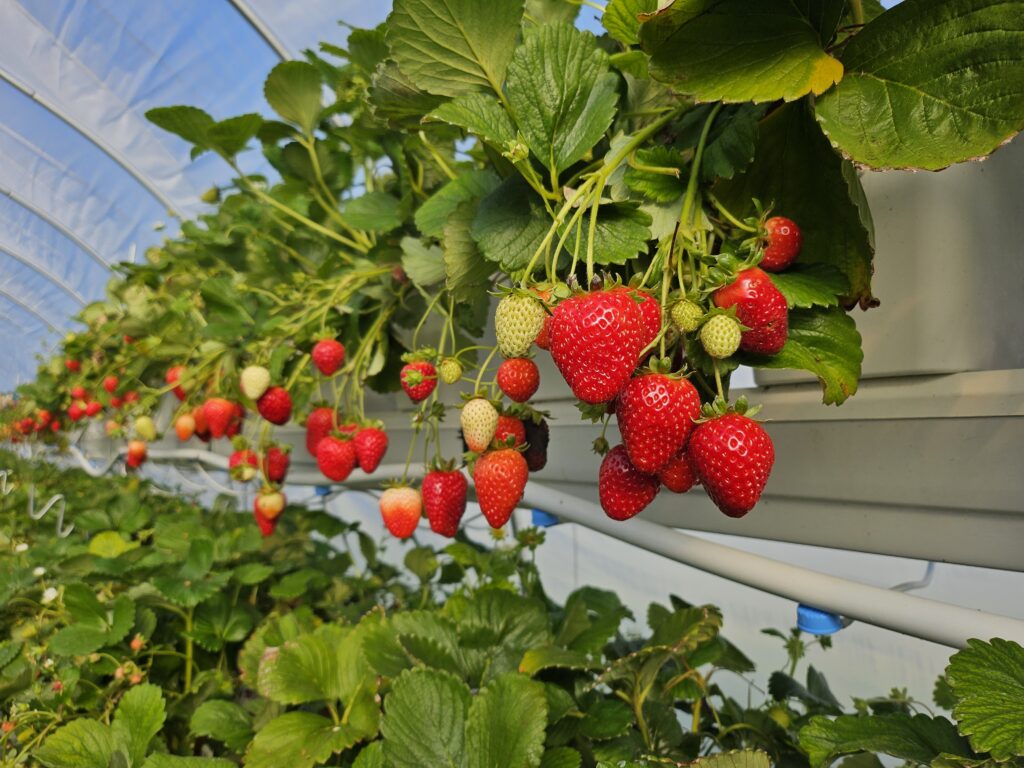
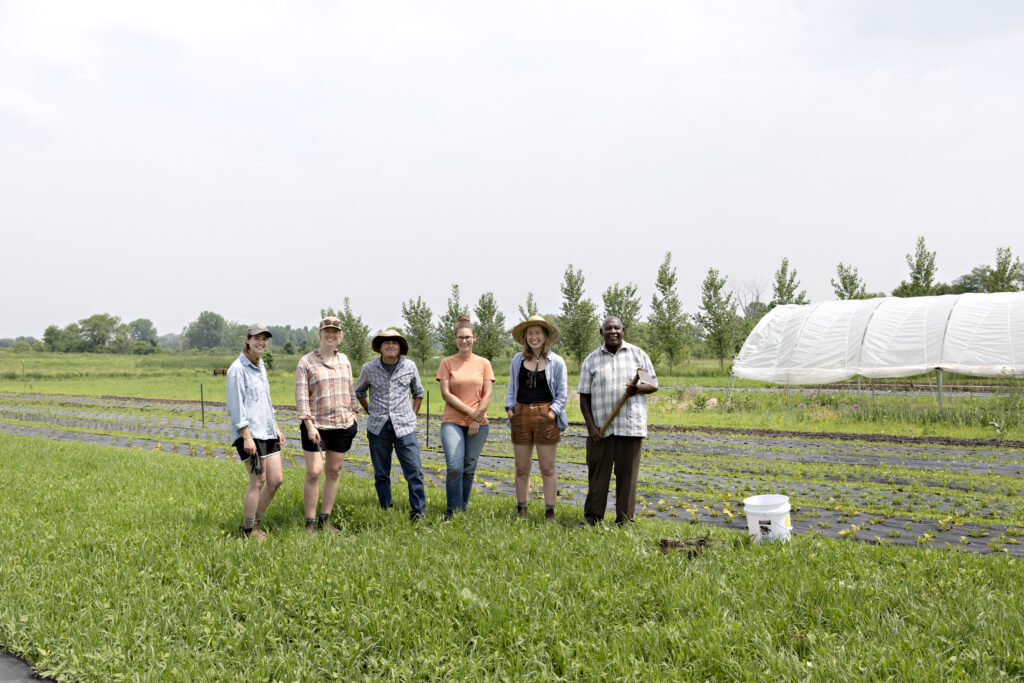
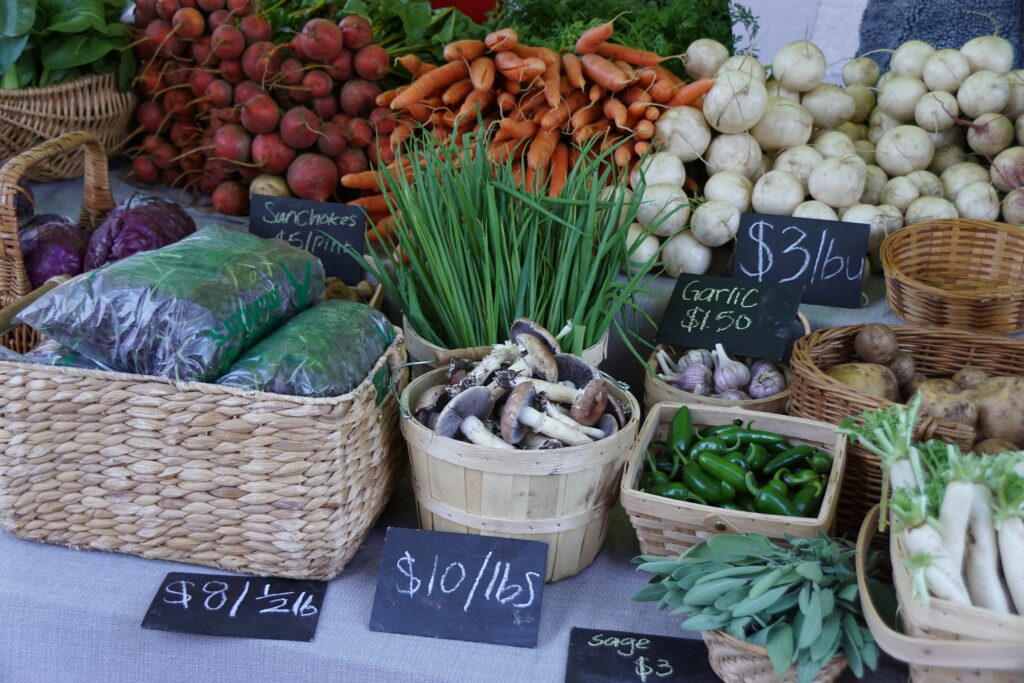
After Sharing Our Roots in Northfield nearly doubled the number of farm teams on its land in 2024, Lucia Possehl and the rest of the staff there realized that food safety improvements and shared infrastructure expansion were needed to ensure that farmers would be successful. Operating on 163 acres of previously degraded farmland, which is now made up of wetlands, diversified vegetable plots, perennials, livestock pasture and conservation and agricultural easements, Sharing Our Roots provides three-year rolling land agreements for immigrant, BIPOC, LGBTQ+, emerging farmers and community gardeners while “advancing a resilient agriculture system that demonstrates the power to heal our lands, nourish our communities and prepare emerging farmers.”
To fund the necessary improvements, Possehl, Sharing Our Roots’ Common Cohort Program Manager, applied for the Next Stage Grant. Once chosen as a recipient, Possehl then used the funds to upgrade the irrigation system and pack shed, which included purchasing stainless steel carts, pallet racking and a hanging hose system.
Then, a few months later in June, extreme flooding overtook the land.
“All of our farmers — livestock farmers, vegetable growers — were impacted by the flooding. Some didn’t have any crops left,” shares Possehl. “That’s when Mill City told us about the Hardship Grant.”
Possehl applied for the second grant on behalf of the entire Sharing Our Roots cohort and said the immediate influx of funds acted as a relief fund for all 13 farm teams.
“Accessible crop insurance isn’t really available to farmers at the scale that we’re operating at, or for beginning farmers,” she explains of the grant’s direct impact. “So we were able to create this impromptu Climate Relief Fund, as we called it. Long term, we’re hoping to be able to sustain that in some way, because there isn’t a safety net for emerging and immigrant farmers, especially in their first few years of doing business. In partnership with allied organizations, our aim is to provide a more robust support system for our farmers.”
That mission of supporting growers echoes back to the ultimate goal of the Mill City Farmers Market Charitable Fund, a full-circle truth that isn’t lost on Daniels of Mill City.
“We can’t be fair-weather fans for farmers; we have to sustain those who are sustaining us, and we have a responsibility to respond when bad things happen,” says Daniels. “This is just one way that we can show we’re committed to the success of local producers. We’re choosing to respond, and I think that, for me, is inspiring. And I hope that other people start to see it that way. We can’t just love that we live in a city with a bunch of James Beard Award-winning restaurants, we have to think about why our community has amazing restaurants. It’s because of the ingredients. It’s because of the sourcing. Food starts with farmers, and local farmers are the unsung heroes. We’re not giving enough attention to how hard it is and how much investment it takes to build a career in sustainable agriculture. We all need to do our part and step up.”
Ellen Burkhardt is a former editor at The Growler and Minnesota Monthly magazines, and has contributed deep-dives into the curious, hidden realms of our world to local and national publications since 2009.
Applications for the Mill City Farmers Market Charitable Fund (MCFM-CF) 2025 Next Stage Grant cycle will open in January 2025. Applications are due March 1 with grants awarded in early April. Hardship Grant applications are accepted on a rolling basis while funding is available. To review criteria for the Next Stage and Hardship grants, please visit millcityfarmersmarket.org/grants. MCFM-CF staff is available to answer your questions and help you complete your application. Translation provided as needed. For questions or assistance, please contact chrissy@millcityfarmersmarket.org or 612-341-7580.
